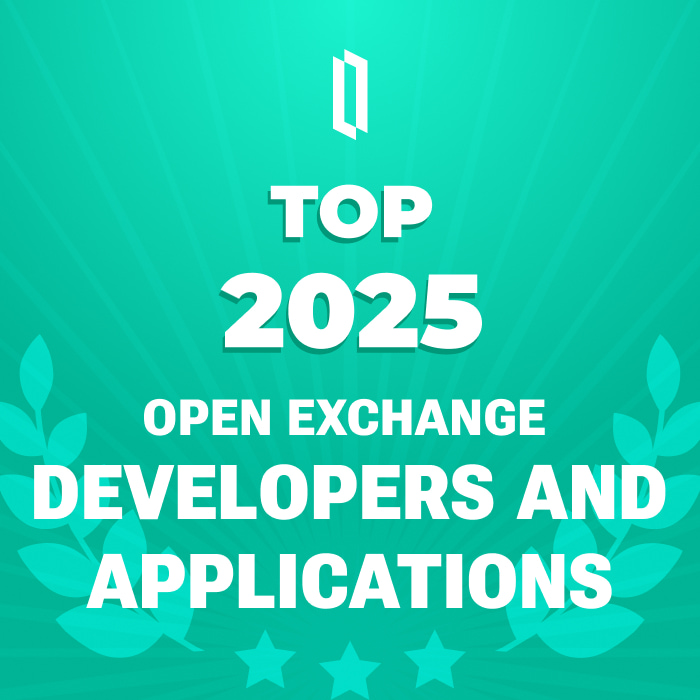Hello, I've completed this tutorial: https://community.intersystems.com/post/deepsee-period-date-vs-same-per…
I've used the "year" level instead of a pivot variable.
I want to calculate something like the following variation: 100 * ([DateOfSale].[PTD] - [DateOfSale].[LYPTD]) / [DateOfSale].[LYPTD]
I create a new calculated member, under the same dimmension with the above expression.
I put the new calculated member under the Count measure and it tells me that "Two measures cannot be crossjoined"
What am I doing wrong?
Can you redirect me to some explanations and maybe a solution?
Thanks!
Hi, Community!
Please find the Developer Community Video of the week on InterSystems Developers YouTube Channel:
System Sizing for Insanely Large Deployments
I need to get a list of all classes that are subclasses of two unrelated classes.
For example I want to get a list of all classes that are both:
- Persistent (extends %Library.Persistent)
- XML-Enabled (extends %XML.Adaptor)
To get subclasses of one class I can use this query:
set rs = ##class(%Dictionary.ClassDefinitionQuery).SubclassOfFunc("%Library.Persistent")But what about two classes?
I suppose I can run this query twice, build two $lb, then iterate over one of them and build a new $lb with classes that appear in both lists. Are there any better approaches?
Is it possible to dynamically adjust the RetryInterval andFailureTimeout settings in a BPL?
I've got a business process that calls a web service operation to get a session ID from an external system. There is a string property returned in the body of the response that indicate an exception occurred in the external system. I have code in the BPL that examines the property and sets the status property to an error status when that occurs.
Depending on what the value is I want to adjust the RetryInterval and FailureTimeout values used in by the system when the ReplyCodeActions is set to E=RD.
Exampl
Hi!
I am not system admin. But it used to be very simple to install CSP Gateway on an apache system on Linux with Apache installed. I used to run the CSP Gateway installation program and after it was done, all I had to do was fine tune some configurations on CSP Gateway portal on http://<ip>/csp/bin/Systems/Module.cxw and I was up and running.
Good afternoon -
I'm in the process of learning to make COS calls to REST-based web services and while I am having success, I'm struggling on how to parse out the results (I admit I'm very green at this):
Here's the code retrieving the JSON response:
w !,"Get the JSON"Set Result = {}.%FromJSON(Request.HttpResponse.Data)This has Result as a Library.DynamicObject.
I can then write out the response using:
w !,Result.%ToJSON()
This works, I can see the response is valid and what I want. Here is the JSON returned (de-identified):
{
"RecordIDs": [
{
"ID": "1234",
"Type":I'm working on an existing Zen Report that uses queryClass/queryName to retrieve data using a class that has a Stored Procedure method. Which works fine.
I have created second class with a Stored Procedure method, I modified the zen report to use this class and now I'm having the following error.
Error: SQLCODE: -99 Message: User UnknownUser is not privileged for the operation ErrorNo: 5540
Regards,
Rui
Several Ensemble adapters have SERVICEINPUTCLASS and/or SERVICEOUTPUTCLASS parameters defined.
For example:
Class EnsLib.HTTP.InboundAdapter Extends EnsLib.TCP.InboundAdapter
{
Parameter SERVICEINPUTCLASS = "%Stream.Object";
Parameter SERVICEOUTPUTCLASS = "%Stream.Object";
...
}What are they for?
Hi everyone, I have a SQL service that is working fine, except I don't want it to run on a schedule or continuously. I'd like to only run when requested. Run once and then stop until another request. Is there anyway to set up a service like that?
Hello everybody.
What I have is a criteria how to select "my" strings. What I need is to replace all of them with macro calls (using the same strings as arguments) in all classes of current namespace.
I was ready to write straightforward code, but at the last moment decided to ask the community: maybe I've overlooked a smarter option?
Any comments and advices would be great appreciated.
Hi,
I have a process in which i call a rest operation in a while loop, get a response in JSON format of 50 issues, with paging, meaning this call will happen until the total amount of issues will be returned. each JSON is parsed into a proxyObject, and inserted to a list. later the entire list will be sent to an SQL operation which will write the data in the appropriate tables.
The problem i'm encountering, is when i use the "ASSIGN" action, with insert at a certain key (context.i=context.i +1 for each iteration of the loop), i get an Error that says that the value 3 is invalid key.
i've
Trying to use AES encryption for a url. I have a plain text string, a 16-byte key and a initialization vector. I am trying to match a C# implementation that uses RijndaelManaged class with a BlockSize = 128, Mode = CipherMode.CBC, Padding = PaddingMode.PKCS7. The output of the $SYSTEM.Encryption.AESCBCEncrypt(text,key,IV), doesn't match what is coming out of C#. All inputs into the $SYSTEM.Encryption.AESCBCEncrypt(text,key,IV) are converted to UTF8 as in the documentation.
I can encrypt / decrypt in Caché as specified in the documentation, but the string is differet from the C#, so the
Hi folks, I'm trying to pad my patient MRN to 10 characters before I do a SQL lookup in my BPL. I've tried various approaches, and have not been successful.
When I add a "code" statement with the following code, I get an error as below.
set context.NewID = "0000000000"
set $EXTRACT(context.NewID,10-len(context.PatientID)) = context.PatientID
ERROR <Ens>ErrException: <OBJECT DISPATCH>zS8+5 ^CHSLI.BPLQueryDatabaseforPatientID.Thread1.1 *Property 'NewID' in class 'CHSLI.BPLQueryDatabaseforPatientID.Context' must be MultiDimensional -- logged as '-' number - @' set |
Is there a way to omit or skip rollback of some data changes during a transaction rollback? Maybe some sort of "autonomous transaction"?
The issue is with error logging in transaction. For example we may have in nested calls the following structure:
TS
<some code>
<error happens>
TRO 1
<error log to database>
but if this code is in another transaction, and that rolls back we lose error data.
Is there a way to do something like
TS
<some code>
<error happens>
TRO 1
<autonomous transaction start\flag>
<error log to database>
<autonomous transaction finish\flag>
so error log will be stored anyway?
I know about
Hi All, I want to run the routine automatically when the system gets login.How to do that?
Hi, folks!
I'm sending emails with %Net.MailMessage.
How can I add a new line for the email body?
The code is:
dim msg as %Net.MailMessage = ##class(%Net.MailMessage).%New()
set msg.Charset="UTF-8"
do msg.TextData.Write("Dear "_Username)
do msg.TextData.Write("Line1")
do msg.TextData.Write("Line2")
And I'm getting in email:Dear UserLine1Line2
How can I get:
Dear User Line1 Line2
I want to manipulate all the objects whose type is%Dictionary.StorageSQLMapDefinition by %OpenId
However, I don't know the exact id to feed into %OpenId, is there a way to query all the existing ids of %Dictionary.StorageSQLMapDefinition in a namespace?
Thanks.
We are running Caché v2010.2 on OpenVMS and are receiving the message, 'Unable to start the database read test' in our CCONSOLE.LOG.
I was wondering if anyone could offer some insight on this as I was not able to find the error mentioned in the documentation.
Does anyone know of a utility to compare two databases (i.e., CACHE.DAT files) and find globals/subscripts that are different between them?
If not, I'll write one and share it. ![]()
I have a simple SQL service that does a simple select from an SQL database. After the select, I do an update to set the ProcessedFlag to "Y" for yes, so my next pass doesn't select records already processed. The service works fine, except when it's done I get the error below, anybody know what is causing this error?
Hi all,
I'm exploring using installation manifests to deploy Ensemble configuration changes. I noticed that the documentation uses a macro within an "Error" tag.
<Error Status="$$$NamespaceDoesNotExist">
So I thought this would also be possible with "Var" tags, "If" tags, etc. For example:
<If Condition = "$$$isDevEnvironment">...
I wanted to use the same manifest file, but execute certain things on different environments, but it doesn't seem that this macro gets resolved in this case - I thought the code generation step of would handle this.
I understand that I can achieve the same with different
What is FHIR and How to work with FHIR in Cache.How to we write a web services using FHIR.
Please give the Example.
Hi Community!
Check the new video on InterSystems Developers YouTube Channel:
Tier 1 Applications in a Virtual Environment
The dataCombo property columnHeaders is a comma-delimited list of column headers displayed in the dropdown list.
Comma is a delimiter.
But, if I want add comma to columh header, for instance "House number, apartment" - this is value for header of one column.
How can I escape comma in this case?
"House number\, apartment" - is not working.
Hello all,
Can someone please tell me what will be the steps if I want to override css of deepsee dashboard widgets?
Or if it's even possible.
Thanks a lot.
Hi
Does anybody know what happend to %SYS.GSET routine in Cache 2016 ?
In Cache 2013 it still existed, I didn't find anything about it in Cache realese notes 2014 and 2015.
Uri
What is the default user to login with "Healthshare Management Portal"
How do i reset system user password?
How do i add new user?
tl;dr I have discovered that using $THIS in a very specific way will make persistent objects go stale.
I found that it only happens when using $get on an array that contains the OID reference of $THIS. I assume that this is an unwanted feature and have raised a WRC. The problem can be recreated following the steps below, I have also posted the workaround that I am currently testing and looks to be working fine.
1. Create a persistent class...
{
Property SomeValue As %String;
Method SomeMethod()
{
//this will cause $THIS to go stale in this process
if
I have a call in a business process that returns a response which may contain a collection of error message. I use the following code in my response builder to extract the messge value from the first error and map them to a context variable:
Set context.ErrorMessage callresponse.result.GetAt(1).errors.GetAt(1).message
This works nicely when an error comes up, however when no error is returned (i.e.
Hi all,
I need to create a routine to modifiy some values in a global.
My first attempt was:
set pos=$Order(^Ens.MessageBodyD(""))
while(pos > 0){
// Get the class name
set clase = $Order(^Ens.MessageBodyD(pos,1))
if (clase="MensajesRestResponse")
{
// Do the convertion
}
set pos = $Next(^Ens.MessageBodyD(pos))
}
but if I use a *.bas file (cache basic script), I'm not able to use these commands ($Order and $Next) and I don't know how to translate theses words.
please, could the comunity help

